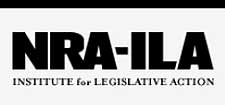
Fairfax, VA – -(Ammoland.com)- A member of the group New Yorkers Against Gun Violence (NYAGV) recently penned a newspaper opinion piece on the upcoming deadline for recertifying handgun licenses in New York State.
Titled, “Gun recertification a step for safety, not confiscation,” the writer ridicules New York State handgun owners as being “‘up in arms’ again over the fact that they have to recertify” their eligibility to possess a handgun.
For “too many gun owners,” he adds, “any gun safety legislation is wrong, viewed as the camel’s nose in the tent of gun confiscation.” He concludes by expressing his disgust at what he calls “…the mindless fealty to the NRA and its affiliates’ spin that all gun laws are unconstitutional and will lead to confiscation. There are 300 million guns in our country; do the math. No one is coming for your guns.”
Every person is entitled to his or her own opinion, of course, but facts are a different matter.
The passage of New York’s so-called SAFE Act (“Secure Ammunition and Firearms Enforcement Act of 2013”) drastically changed the landscape for lawful gun owners in the Empire State. Besides new restrictions on commonly owned semi-automatic rifles the state calls “assault weapons,” bans on magazines, and limits on the number of rounds that could be loaded into a gun, the Act imposed a requirement that handgun license holders be “recertified” every five years, with all licensees completing the initial recertification by January 31, 2018. The recertification form requires that the licensee disclose his or her “name, date of birth, gender, race, residential address, social security number, [and] firearms possessed by such license holder,” along with the listed identifying details (make, model, caliber, and serial number). (“Firearm” under the applicable New York law means a handgun or other gun of a size which may be concealed upon the person.)
A failure to recertify operates as an automatic revocation of the license. Possession of a “firearm” without a valid license is a criminal offense, and the revocation makes the person ineligible to apply for or renew a license. Once a license is revoked, state law mandates that every gun owned or possessed by the licensee be “surrendered” to a law enforcement agency. A New York State Police field guide on the SAFE Act, prepared by attorneys for the Division of State Police, unequivocally instructs officers that when “a licensee becomes ineligible to hold a pistol permit, the Safe Act requires the person to surrender all firearms to police, including all rifles and shotguns for which no license or registration is required.” (Emphasis in the original.)
Should the person fail to comply by turning in every gun, the SAFE Act (codified as NY Penal Law § 400.00(11)(c)) not only authorizes but requires that police officers confiscate such property: the guns “shall be removed and declared a nuisance and any police officer or peace officer acting pursuant to his or her special duties is authorized to remove any and all such weapons.”
Once the gun is deemed a “nuisance,” the owner loses the ability to reclaim or legally transfer it. State law directs that nuisance guns be destroyed without the need for a court order or other judicial proceedings, and courts have confirmed that a person has no “legitimate possessory interest” in firearms for which he or she has no license.
The policy of recertification is clear: licensees who fail to comply – by inadvertently missing the deadline, for example – face having all guns, and not just the firearms covered by the license, permanently confiscated by law enforcement officers. Far from being overblown hyperbole, describing the recertification law as “the camel’s nose in the tent of gun confiscation” is not only accurate but arguably, an unduly benign portrayal of a grossly disproportionate regime to enforce recertification through mandatory surrender, police seizure, and destruction of otherwise legal property.
Even assuming that license recertification is “a step for safety,” as the NYAGV member claims, it’s not clear how much less secure or safe residents would be if the recertification process included, instead, a grace period for late compliance or imposed a penalty fee for licensees who miss the deadlines but are eligible to recertify. Felons and other criminals are notoriously unlikely to obey gun licensing rules, and state law already makes any weapon that is used in the commission of a crime or that is unlawfully possessed a “nuisance” weapon. Judging from statistics from the New York State Division of Criminal Justice Services (Nov. 2017) on “firearm activity” (based on reports from police agencies across the state), New York residents aren’t significantly more safe since the 2013 gun control legislation was imposed. The total figures for 2016 for “shooting incidents involving injury” and “shooting victims (persons hit)” exceed the totals listed in each of the previous seven years; the 2016 figure for “individuals killed by gun violence” shows a just under ten percent increase as compared to the five-year average prior to 2016.
In the same way that anti-gun advocates consistently seek to disguise restrictive gun control measures under the veneer of “common sense,” “gun safety,” or “gun law reform,” they aim to influence public opinion towards “strengthening” gun laws by dismissing opposition to such laws by ordinary, informed Americans as the “mindless” nattering of a handful of extremists.

As for New Yorkers Against Gun Violence, the group’s own website proclaims that “NYAGV was instrumental in the passage of the NY SAFE Act in 2013.” That being the case, we may be excused for dismissing the article as no more than a stakeholder’s spin, aimed at securing public buy-in for a gun control law that extinguishes rights in the name of “public safety.”
About:
Established in 1975, the Institute for Legislative Action (ILA) is the “lobbying” arm of the National Rifle Association of America. ILA is responsible for preserving the right of all law-abiding individuals in the legislative, political, and legal arenas, to purchase, possess and use firearms for legitimate purposes as guaranteed by the Second Amendment to the U.S. Constitution. Visit: www.nra.org
